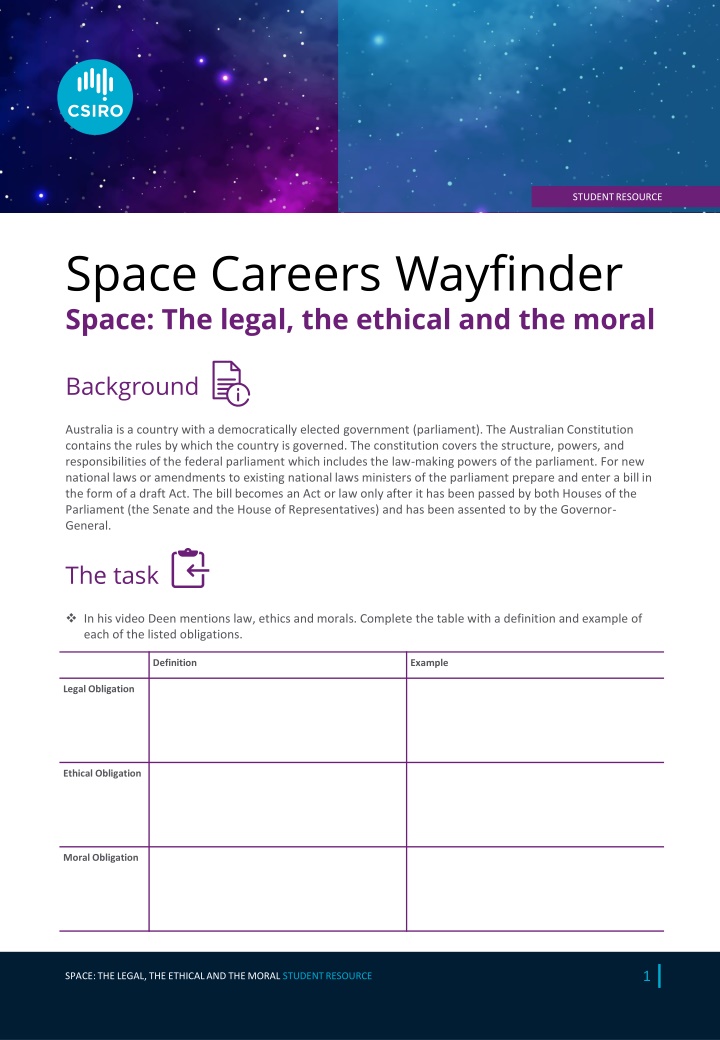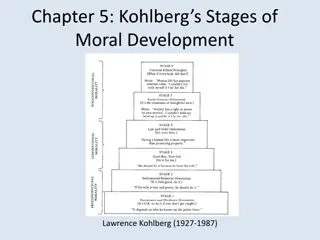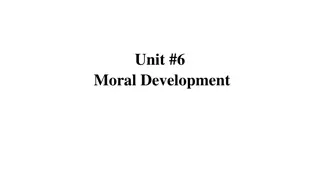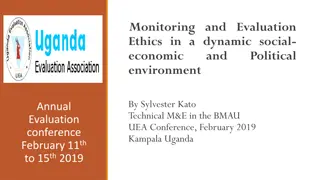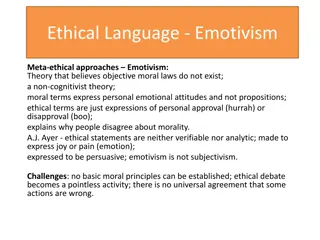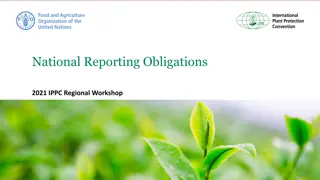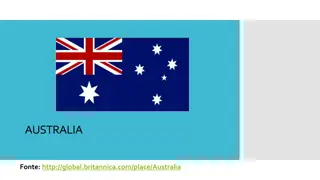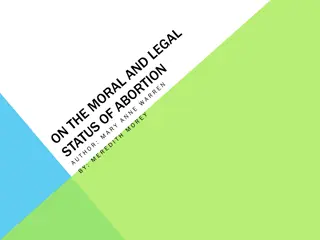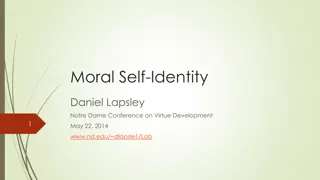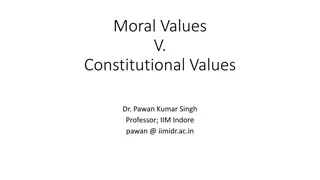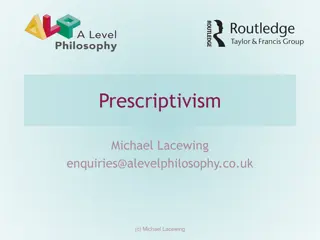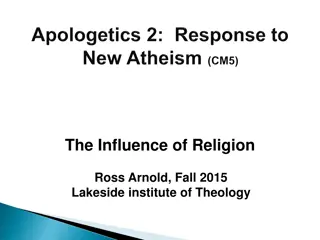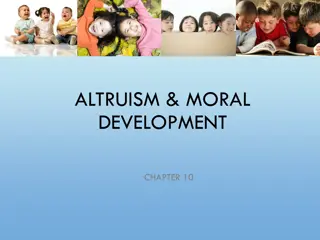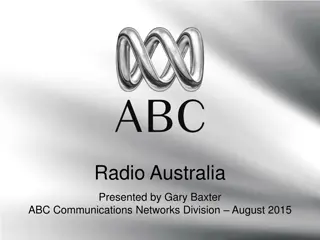Legal, Ethical, and Moral Obligations in Australia
Australia's governance system, international treaties like the Outer Space Treaty, challenges to treaty compliance, and the cultural significance of the night sky to Aboriginal and Torres Strait Islanders are discussed in this comprehensive resource on legal, ethical, and moral obligations. Dive into the intricacies of legislative processes, ethical dilemmas, and moral considerations in various contexts.
Download Presentation

Please find below an Image/Link to download the presentation.
The content on the website is provided AS IS for your information and personal use only. It may not be sold, licensed, or shared on other websites without obtaining consent from the author.If you encounter any issues during the download, it is possible that the publisher has removed the file from their server.
You are allowed to download the files provided on this website for personal or commercial use, subject to the condition that they are used lawfully. All files are the property of their respective owners.
The content on the website is provided AS IS for your information and personal use only. It may not be sold, licensed, or shared on other websites without obtaining consent from the author.
E N D
Presentation Transcript
STUDENT RESOURCE Space Careers Wayfinder Space: The legal, the ethical and the moral Background Australia is a country with a democratically elected government (parliament). The Australian Constitution contains the rules by which the country is governed. The constitution covers the structure, powers, and responsibilities of the federal parliament which includes the law-making powers of the parliament. For new national laws or amendments to existing national laws ministers of the parliament prepare and enter a bill in the form of a draft Act. The bill becomes an Act or law only after it has been passed by both Houses of the Parliament (the Senate and the House of Representatives) and has been assented to by the Governor- General. The task In his video Deen mentions law, ethics and morals. Complete the table with a definition and example of each of the listed obligations. Definition Example Legal Obligation Ethical Obligation Moral Obligation 1 SPACE: THE LEGAL, THE ETHICAL AND THE MORAL STUDENT RESOURCE
Background Shortly after World War II in 1945 representatives from fifty countries gathered in San Francisco to sign the United Nations Charter, with Australia playing a key role. Today the 193 member states uphold the objectives of the United Nations (UN). In 1967 appointed government officials from the Russian Federation, the Unites States of America and the United Kingdom were all signatories to a UN Outer Space Treaty. As of March 2023, 113 countries are parties to the treaty, with another twenty-three countries signing the treaty but yet to complete ratification1. The task How would you summarise the Outer Space Treaty? Background Countries around the world are defined by international borders. Borders can be determined by international agreements or treaties and may be based on geographical features, cultural, religious or historical factors. A countries sovereign right to the airspace vertically above its territory is governed by international law. However, the vertical height above sea level (altitude) to which sovereignty extends is not clearly defined. The task If the airspace vertical height relating to sovereignty is not defined, how is it possible for signatories to comply with underlying principles of the Outer Space Treaty? 1 https://en.wikipedia.org/wiki/Outer_Space_Treaty#cite_note-unoda-1 2 SPACE: THE LEGAL, THE ETHICAL AND THE MORAL STUDENT RESOURCE
For over 50 years the treaty has worked well with very few challenges to the status quo. Arguably the two most serious challenges occurred just over a decade apart. The first in 1976 in what was later referred to as the Bogota Declaration , and then again in 2007 when China was thought to have violated the treaty. What was the basis of the Bogota Declaration? How was China thought to have violated the treaty? Background During Deen s video he talks about space belonging to all of us and at the same time belonging to none of us, Space belongs to all of us, and it belongs to none of us. It is something that every single human being on this planet sees every single night. It's one of the few things that we genuinely share. We don't always share the same country. We don't always share the same language. We all of us share the same skies. And those stars that tell us their stories, they belong to all of us. Aboriginal and Torres Strait Islanders have used the night sky for over 50 000 years They have used the night sky to predict seasonal changes to the environment, the availability of native foods and the behaviour of plants and animals. The task Choose an area of the night sky which has a particular relevance to Aboriginal and Torres Strait Islanders and describe the feature and its relevance. 3 SPACE: THE LEGAL, THE ETHICAL AND THE MORAL STUDENT RESOURCE
Background To many Aboriginal and Torres Strait Islander cultures the Sun and the Moon have a place in the Dreaming Stories. To some the Moon is a powerful man, to the people of the Nuenonne territories of Southeast Tasmania the Sun is a man named Puywin and the Moon his wife Venna2. The associated rise and fall of the seas and oceans with the phases of the Moon was recognised by the Yolngu people of East Arnhem Land. According to the Outer Space Treaty 1967 No country has a unique ownership of the Moon, and all nations are accorded equal rights an access. The treaty also states, The Moon and other celestial bodies shall be used exclusively for peaceful purposes. The task Imagine a well-developed nation with an established space program are proposing to build a settlement on the Moon and mine the mineral resources there. They plan to ship the minerals back to Earth for use in consumer goods. Many Aboriginal and Torres Strait Islanders have a strong cultural connection to the Moon and the stars. What do you think their reaction might be to a settlement on the Moon and mining of the Moon? 2 https://cosmosmagazine.com/space/lunar-traditions-of-the-first-australians-2/ 4 SPACE: THE LEGAL, THE ETHICAL AND THE MORAL STUDENT RESOURCE SPACE CAREERS WAYFINDER IS A COLLABORATION BETWEEN THE CSIRO AND THE AUSTRALIAN NATIONAL UNIVERSITY
